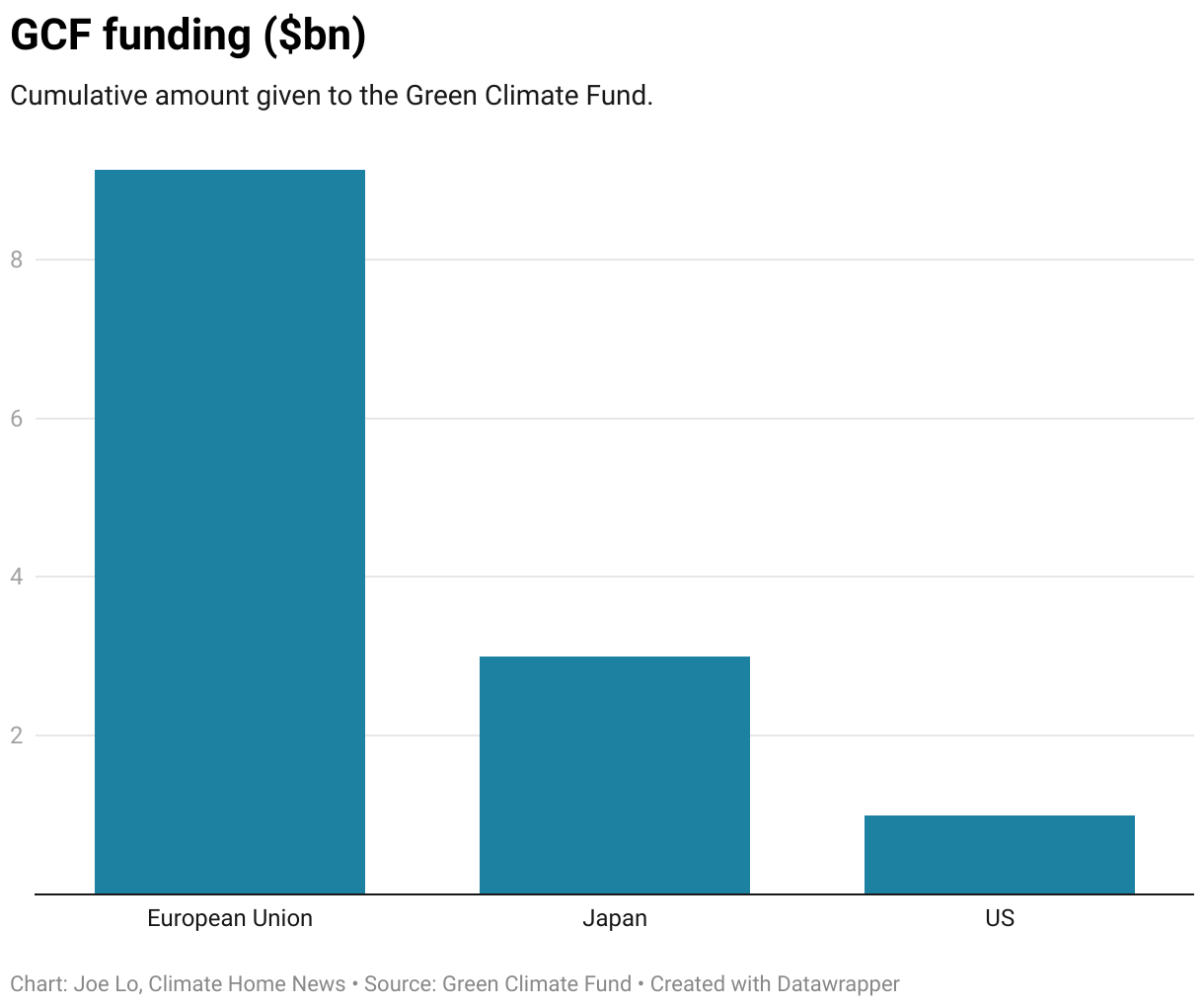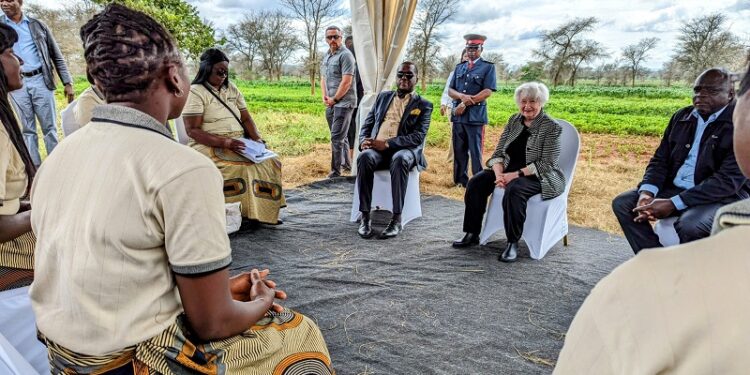The Green Climate Fund is making cutbacks to its project portfolio, while the US fails to deliver on a years-old funding pledge
African governments sought to block the US from co-chairing the Green Climate Fund (GCF) board, citing its failure to deliver cash.
Developed countries nominated the US Treasury’s Victoria Gunderson to jointly lead the UN flagship climate fund’s deliberations in 2023. These appointments are typically approved without discussion.
On behalf of African board members, Kenyan environment official Pacifica Ogola raised an official objection. The US has contributed just $1 billion to the fund in its 12-year history, compared to $9bn from EU countries and $3bn from Japan. A further $2bn pledged under former president Barack Obama was never delivered. His successors Donald Trump and Joe Biden have not paid in a cent.
Ogola stressed, in a letter dated 16 January, rich countries’ responsibility to inject money into the GCF and called for better enforcement of commitments. Approving Gunderson’s role must not “normalise the situation” of non-payers holding sway over decisions, she argued.
The outgoing co-chairs persuaded African members not to veto the appointment, on the assurance that the board would discuss their broader concerns.
n March 2022, GCF executive director Yannick Glemarec warned that without more resources, the fund would have to tightly ration support for carbon-cutting projects in the developing world. “Some turn-off will be unavoidable,” he said. “It’s one of my fears.”

US outreach
One week after African members raised the objection, US treasury secretary Janet Yellen visited a project in Zambia helping farmers adapt to the climate crisis.
Yellen told reporters: “It’s funded by the Green Climate Fund, which the United States is proud to be a part of. We are committed to making sure that the Fund has sufficient resources to carry on this important work.”
The GCF is hosting its next regular request for donations at the end of 2023.
In December 2022, Congress did not earmark any finance for the GCF in the government’s 2023 fiscal year budget. There is enough flexibility in the spending bill that a contribution is still possible – but a Republican majority in the House of Representatives is expected to resist.
Liane Schalatek speaks for civil society as an observer to the GCF board. “The objection highlights the expectation that is placed on a developed country chairing during replenishment to dig deep with their own contributions,” she said.
During the GCF’s last request for donations in 2019, the UK as board co-chair made the largest contribution. But “it is doubtful that the US can replicate the UK example”, Schalatek added.
Source: ClimateChangeNews




Recent Comments